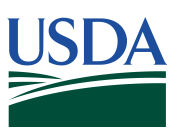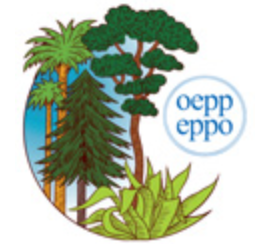Respect for your privacy is our priority
The cookie is a small information file stored in your browser each time you visit our web page.Cookies are useful because they record the history of your activity on our web page. Thus, when you return to the page, it identifies you and configures its content based on your browsing habits, your identity and your preferences.
You may accept cookies or refuse, block or delete cookies, at your convenience. To do this, you can choose from one of the options available on this window or even and if necessary, by configuring your browser.
If you refuse cookies, we can not guarantee the proper functioning of the various features of our web page.
For more information, please read the COOKIES INFORMATION section on our web page.


 In November 2019, the Animal and Plant Health Inspection Service (APHIS) in the USA issued a Federal Order imposing restrictions on imports of tomato and pepper seed lots, transplants, and fruit into the USA from all countries where tomato brown rugose fruit virus (ToBRFV) had been reported. In June 2020, APHIS amended the import requirements for tomato and pepper fruit for consumption by adding restrictions for tomatoes and peppers to additional countries. These mean that shipments of tomato or pepper seeds or propagative plant materials from all countries must be accompanied by a phytosanitary certificate or a re-export phytosanitary certificate with an additional declaration certifying that the lots fulfil the additional requirements prior to importation into the United States and territories.
In November 2019, the Animal and Plant Health Inspection Service (APHIS) in the USA issued a Federal Order imposing restrictions on imports of tomato and pepper seed lots, transplants, and fruit into the USA from all countries where tomato brown rugose fruit virus (ToBRFV) had been reported. In June 2020, APHIS amended the import requirements for tomato and pepper fruit for consumption by adding restrictions for tomatoes and peppers to additional countries. These mean that shipments of tomato or pepper seeds or propagative plant materials from all countries must be accompanied by a phytosanitary certificate or a re-export phytosanitary certificate with an additional declaration certifying that the lots fulfil the additional requirements prior to importation into the United States and territories. TOBRFV was also added to the European and Mediterranean Plant Protection Organization (EPPO) Alert List in January 2019 and to the EPPO A2 “List of pests recommended for regulation as quarantine pests” in 2020. Phytosanitary measures to prevent the introduction of ToBRFV were introduced in 2020 stipulating that seeds should be produced in a pest free production site for ToBRFV established according to EPPO Standard, produced from parent plants that have been inspected and tested, be of varieties known to be fully resistant to ToBRFV, or have been directly tested. Imports of seeds into the EU or exchanges between EU countries are subject to a phytosanitary passport guaranteeing that the seeds have been tested and found exempt of the virus.
TOBRFV was also added to the European and Mediterranean Plant Protection Organization (EPPO) Alert List in January 2019 and to the EPPO A2 “List of pests recommended for regulation as quarantine pests” in 2020. Phytosanitary measures to prevent the introduction of ToBRFV were introduced in 2020 stipulating that seeds should be produced in a pest free production site for ToBRFV established according to EPPO Standard, produced from parent plants that have been inspected and tested, be of varieties known to be fully resistant to ToBRFV, or have been directly tested. Imports of seeds into the EU or exchanges between EU countries are subject to a phytosanitary passport guaranteeing that the seeds have been tested and found exempt of the virus. 


























